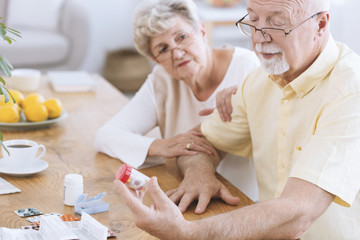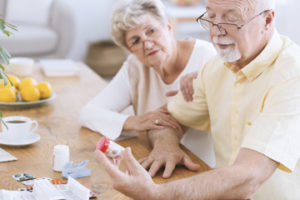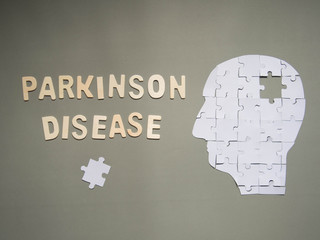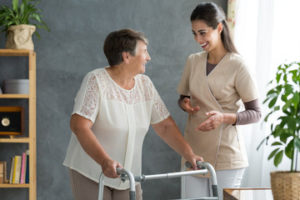Parkinson’s disease is fairly common among senior citizens, and it can make it difficult for individuals to perform daily tasks and enjoy a high quality of life in their golden years. According to the Parkinson’s Foundation, more than 60,000 Americans are diagnosed with this disease every year. It is one of the common health issues that arise in old age. Although the exact cause of Parkinson’s disease is unknown, researchers have identified a few risk factors that increase the likelihood of developing this medical condition. Professional in-home caregivers discuss some of the common risk factors for Parkinson’s disease.
RISK FACTORS FOR PARKINSON’S DISEASE
1. Gender
Both senior men and women can be on the verge of developing Parkinson’s disease. However, it is observed that older men are more susceptible to this medical condition than their female counterparts. Though scientists don’t fully understand the impact of gender on Parkinson’s disease, they believe it has something to do with injuries. Since men sustain more physical injuries and traumas throughout their lives than women, their motor skills are likely to decrease with age.
It is worth mentioning that the research on this topic is still ongoing. Scientists have considered the average number of injuries sustained by both genders to reach to this conclusion. Individual cases are likely to vary.
2. Age
Seniors who are older than 65 and lead unhealthy lifestyles can develop Parkinson’s disease or experience several symptoms of this medical condition. Once your senior loved one crosses the age of 60, he or she can be on the verge of several age-related issues such as Parkinson’s disease, dementia, stroke, or Alzheimer’s disease. If your elderly loved one is over 65 years of age and experiences frequent tremors and shakes, talk to his or her doctor about the possibility of Parkinson’s disease.
In some exceptional cases, individuals may develop Parkinson’s disease in their middle ages. Early onset of Parkinson’s disease is often due to genetics or family history. However, excessive physical trauma, cognitive decline, and vitamin B deficiency can also make middle aged adults susceptible to Parkinson’s disease.
3. Ethnicity
Among the various ethnicities, Caucasians are the most susceptible to Parkinson’s disease. The exact reason European and North American seniors develop Parkinson’s disease is still unknown. However, Caucasian seniors are not the only ones susceptible to this disease. Seniors with Hispanic and Asian ancestry are also prone to developing Parkinson’s disease. The medical condition is also rapidly rising among African-Americans.
ALSO READ: Infographic: 10 Signs Your Parents Need Home Care
4. Family History and Genetics
Up to 16 percent of people who have a family history of Parkinson’s disease end up developing the medical condition in their senior years. There are also several kinds of genetic mutations which are strongly connected to Parkinson’s disease. If your family has a history of age-related illnesses, it is better to schedule a doctor’s appointment to learn about your possibility of developing Parkinson’s disease.
5. Head Trauma
Concussions or head injuries can be the reason for head trauma among seniors, which can also make them prone to Parkinson’s disease or other serious health issues. Individuals who have a head or neck trauma can develop Parkinson’s disease in their golden years, but it is not the case in every situation. Head trauma can also cause cognitive decline or problems with critical thinking, focus, or remembering complex tasks.
6. Environmental Control Pests
Seniors who are living in urban areas are often exposed to harmful components such as pollution which can increase their risk of developing Parkinson’s disease. There are several case studies that focus on the strong link between Parkinson’s disease and living in a noxious atmosphere. If your elderly loved one has worked at a farm his or her whole life or is currently residing near one, he or she is at risk of chemical and pesticide exposure.
7. Medication Usage
Certain medications can raise the risk of developing Parkinson’s disease. Several prescription and over-the-counter medications used in treating severe paranoia, schizophrenia, and other mental issues increase the likelihood of developing Parkinson’s disease. If your senior loved one needs medications to alleviate certain health issues, talk to his or her doctor about the impact of such prescriptions on raising Parkinson’s risk.
8. Vitamin B Deficiency
In a recent study, scientists evaluated the impact of vitamin B deficiency on Parkinson’s disease. Mice with vitamin B deficiency ended up developing severe Parkinson’s symptoms, while those with normal level of this essential vitamin were able to retain their motor skills for longer.
SEE ALSO: Top 5 Healthy Eating Tips For Seniors.
9. Estrogen Level Depletion
Estrogen is an important female sex hormone, and its concentration tends to decrease with age. Older women have extremely low levels of estrogen, especially after they’ve had their menopause. As estrogen levels decrease, senior women become susceptible to Parkinson’s disease. One of the best ways to reduce the likelihood of developing this medical condition is to try hormone therapy.
If your loved one is one the verge of Parkinson’s or other age-related diseases, get in touch with Tucson home care provider to hire part-time caregivers to help him or her age comfortably.
Author Bio:
Marina Torres works as a full-time content writer and loves to write about how to make life and our surroundings better for emitting a positive vibe from ourselves. She is currently working at Home Care Assistance of Tucson where she is pursuing her career at its best.











